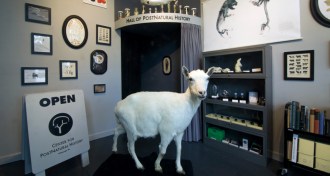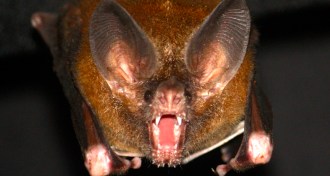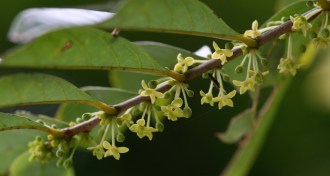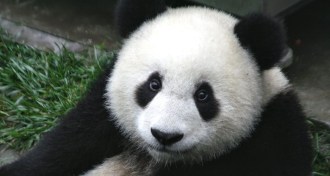Life
Sign up for our newsletter
We summarize the week's scientific breakthroughs every Thursday.
-
 Paleontology
PaleontologyAn ammonite adventure on the Jurassic Coast
This region is special because fossils are easy to find. They wash out of the cliffs and onto the beach where they are free for anyone to collect, as long as you follow the rules.
-
 Life
LifeThe reason to avoid poop coffee isn’t what you think
Beans from civet feces have become so popular that abuse and fraud are common.
-
 Neuroscience
NeuroscienceBrain stimulation restores movement in rats with spinal cord damage
Implanted electrodes might help paralyzed humans walk.
-
 Science & Society
Science & SocietyHumans’ living creations put on display
The Center for PostNatural History, a museum that opened in 2012, features Freckles and other organisms altered by humans.
-
 Animals
AnimalsFrog-eating bats trust self first when hunting
The mammals listen to cues from fellow bats when their own resources fail.
By Science News -
 Plants
PlantsSingle-sex flowers release his, hers fragrances
Growing on the same tree, male blooms smell different from female blooms in certain tropical plant species.
By Susan Milius -
 Genetics
GeneticsDog clone genome nearly identical to donor DNA
The genetic material of Snuppy and of his donor, Tai, is nearly identical.
-
 Earth
EarthTrees mark the spot of buried gold
Tiny bits of the precious metal in eucalyptus leaves indicate treasure lurks belowground.
By Beth Mole -
 Environment
EnvironmentFeedback
Readers respond to "Solving soot," trade-offs of horn size for male Soay sheep and the huge galactic explosion story from 50 years ago.
By Science News -
 Life
LifeGood news for giant pandas
The animal’s immune system has higher than expected genetic diversity, which could lead to better breeding programs.
-
 Genetics
GeneticsGroovy surface changes cells’ state
Physical cues may be as important as chemical ones when trying to revert mature cells to stem-cell-like ones.
-
 Life
LifeLab-grown hair offers early hope
Specific growth conditions could be the key to treating receding hairlines and bald spots, a new study suggests.